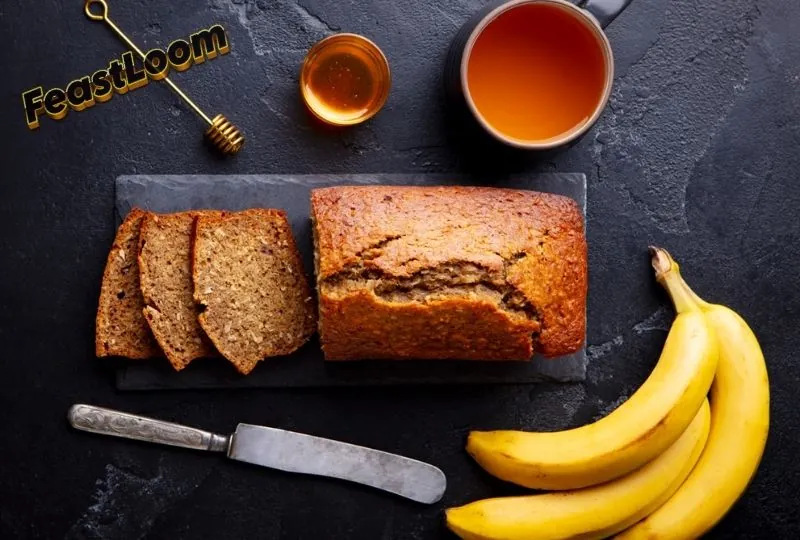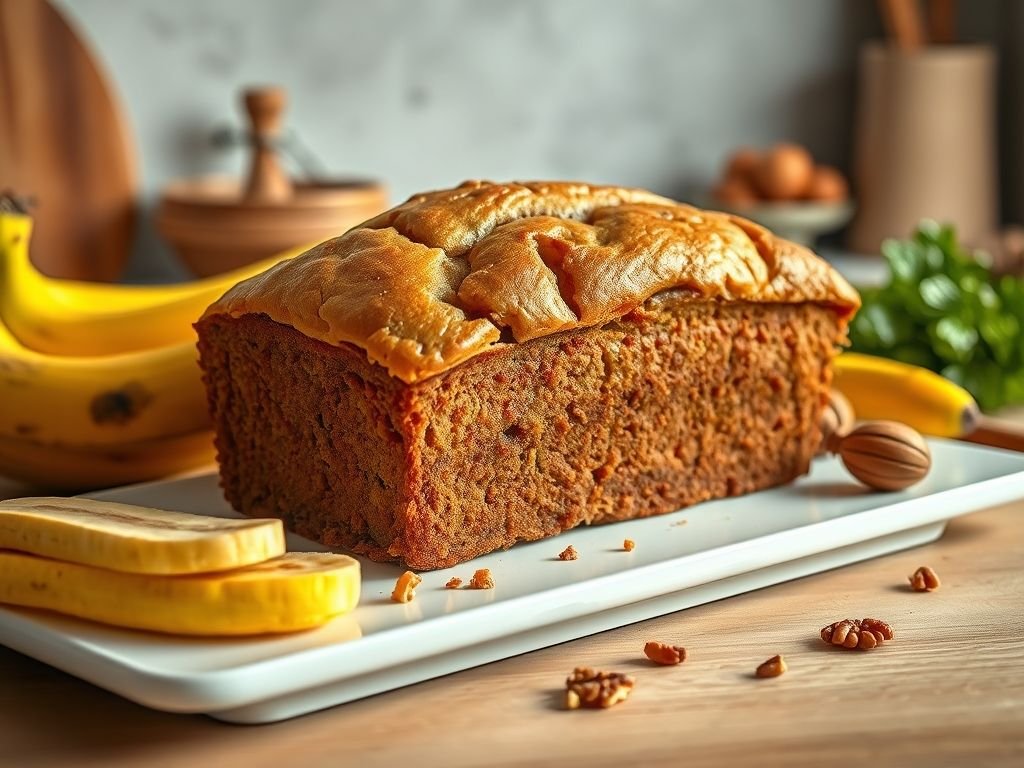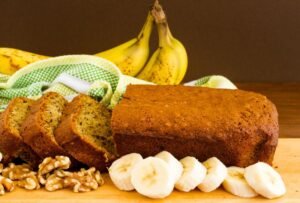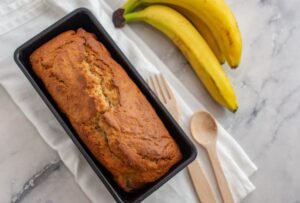Why does my banana bread taste bitter?

Why does my banana bread taste bitter?
Introduction
The warm aroma of freshly baked banana bread permeating your kitchen can quickly turn into disappointment when the first bite yields a bitter taste. Perhaps you’ve asked, “Why does my banana bread taste bitter?” Your favorite banana bread recipe should offer a moist, sweet, and nutty flavor. But sometimes, things don’t go as expected and we end up with a bitter loaf. Let’s find out why and how you can prevent it.
Over-Ripened Bananas
The key ingredient in banana bread is, of course, bananas. However, ripe bananas and overripe bananas can have a noticeably distinct flavor profile because of a reaction known as enzymatic browning. Overripe bananas might result in a bitter aftertaste. Always opt for bananas that are ripe but not overly so.
Leavening Agents – Baking Soda and Powder
Baking soda, or sodium bicarbonate, is a common ingredient in banana bread and other baked goods. Using it helps to give the banana bread its light, airy texture. However, too much baking soda can cause your banana bread to taste bitter. This is because baking soda is basic in nature, and combining it with the acidic ingredients can cause neutralization, leading to different flavors.
Unbleached Flour
The kind of flour you use can also affect the taste of your banana bread. Flour that has not been bleached has a more robust, almost earthy flavor that may contribute to a slight bitterness.
Artificial Sweeteners
Some artificial sweeteners can leave a bitter aftertaste when used in baking. If your banana bread tastes bitter and you’ve used a sweetener instead of sugar, this could be the culprit.
Measuring Error
Measuring out the wrong amount of any ingredient can throw off the intended taste of your banana bread. Make sure to measure your ingredients accurately.
Solutions to Prevent Bitterness in Your Banana Bread
- Balance between acidic and basic ingredients: Make sure there’s a proper balance between acidic and basic ingredients in your banana bread recipe. The most common acidic ingredients are sugar, brown sugar, fruit juice, chocolate, and sour cream.
- Choose your flour wisely: Use the right type of flour prescribed in your banana bread recipe. Stick to all-purpose or pastry flour for the best taste.
- Sugar substitute: If you’re using artificial sweetener, consider switching to a different brand or returning to traditional sugar.
- Correct measurements: Be precise when measuring out your ingredients. Little differences can make a big impact on your end result.
Conclusion
In conclusion, the bitterness in your banana bread could be due to several factors, including overripe bananas, imbalance of baking soda and acidic ingredients, unbleached flour, artificial sweeteners, or simple measuring errors. The good news is that it’s easy to prevent these issues once you’re aware of them. Make sure to measure your ingredients accurately and pick the right kind of bananas and flour. Now that you know these tips, put on your apron and whip up delicious, sweet, and not-bitter banana bread.

Why does my banana bread taste bitter?

**Conclusion**
In conclusion, the bitterness in banana bread can be attributed to several factors. Using unripe bananas, incorporating too much baking soda or baking powder, or using a type of flour with a bitter aftertaste, such as rye or unbleached flour, could cause this. You can ensure a sweet and flavorful banana bread by adhering to the proper measurements of ingredients, using ripe bananas, and using the right type of flour. Also, remember to preheat your oven before baking to prevent a bitter aftertaste. Enjoying a delicious, homemade banana bread does not have to be a complicated ordeal.
**Frequently Asked Questions** (h2)
**Why does my banana bread have a bitter aftertaste?** (h3)
Unripe bananas are a common culprit. They contain tannins, compounds that have a bitter taste and can affect the flavor of your banana bread. Too much baking soda or using a bitter-tasting flour can also contribute to a bitter taste.
**What can I do to make my banana bread taste less bitter?** (h3)
Ensure you’re using ripe bananas, use the proper amount of baking soda, and taste your flour before baking with it to make sure it’s not bitter. Also, preheating your oven can help reduce any bitterness.
**Can overripe bananas make banana bread bitter?** (h3)
No, overripe bananas are actually ideal for making banana bread. They’re sweet and soft, providing a pleasant taste and texture to the bread.
**Does baking powder make banana bread bitter?** (h3)
Similar to baking soda, too much baking powder can result in a bitter taste in banana bread. Always stick to the suggested amounts in your recipe.
**What’s the best kind of flour to use in banana bread?** (h3)
Bleached all-purpose flour is typically the best option for banana bread. Some flours, like rye or unbleached flour, can sometimes have a bitter aftertaste.
**Why is preheating the oven important when baking banana bread?** (h3)
Preheating your oven ensures even and proper baking. If you put your bread into a cold oven, it could bake unevenly and develop a bitter taste.
**How do I know if my bananas are ripe enough for banana bread?** (h3)
Overripe bananas, which are yellow with brown spots, are best for banana bread. They should be soft to the touch and have a strong, sweet banana aroma.

When you make purchases through the links available on our site, we may receive an affiliate commission at no additional cost to you.



